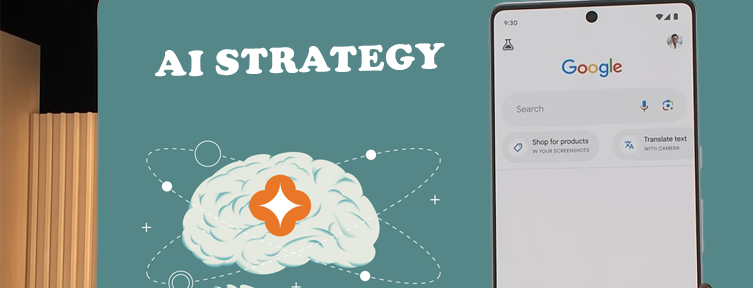The omnipresence of Google in our digital lives is undeniable. The company that started as a humble search engine is now a tech behemoth, pushing the boundaries of innovation with each passing year. At the heart of Google’s evolution is its aggressive and forward-thinking AI strategy. One particular area where Google’s AI prowess is apparent is in its search experience, where generative models and advanced AI techniques play a pivotal role. In this detailed analysis, we’ll explore the depth of Google’s search generative experience and dive into the broader AI strategies driving the tech giant.
1. The Evolution of Google Search
Google Search has come a long way since its inception in 1998. What began as a simple keyword-matching tool has transformed into a sophisticated AI-driven mechanism capable of understanding user intent, context, and a myriad of nuanced queries.
a. From Keyword to Context:
Earlier, Google primarily used keyword-matching algorithms. Today, thanks to advanced machine learning and AI models, it interprets the context of a search query, providing more relevant and accurate results.
b. The Introduction of BERT:
In 2019, Google integrated the Bidirectional Encoder Representations from Transformers (BERT) model into Search. BERT, a deep learning algorithm related to natural language processing, enhanced Google’s understanding of the nuances and context of words in a search query.
2. Generative Models in Search
Generative models are AI algorithms that can generate new data similar to the data they’re trained on. Google leverages generative models in various capacities:
a. Improved Autocomplete:
The predictive text you see as you type in the search bar is powered by generative models. These models predict potential queries based on user history, popular searches, and other contextual factors.
b. Featured Snippets and Answer Boxes:
Generative models help in extracting and generating concise answers from the web for certain queries, displayed as featured snippets at the top of search results.
3. Deep Learning and Search
Deep learning, a subset of machine learning, is about neural networks with many layers. Google employs deep learning extensively:
a. RankBrain:
Introduced in 2015, RankBrain uses deep learning to improve search results. It helps Google process unfamiliar queries and provides more relevant search results.
b. Visual and Voice Search:
Google’s image and voice search capabilities leverage deep learning models for better accuracy. Whether it’s understanding voice nuances or recognizing objects in images, deep learning plays a significant role.
4. Google’s Broader AI Strategy
Google’s commitment to AI is not just confined to search. The company’s overarching AI strategy can be seen in:
a. AI First Philosophy:
In 2017, Google CEO Sundar Pichai emphasized an “AI-first” approach, focusing on integrating AI into all of Google’s products and services.
b. TensorFlow:
Google’s open-source platform for machine learning, TensorFlow, indicates the company’s push towards democratizing AI development.
c. AI Ethics and Responsible AI:
Google has been vocal about employing AI ethically. They emphasize fairness, safety, and transparency in AI and have guidelines to avoid biased or harmful AI outcomes.
5. Future Directions
Google’s AI-driven initiatives promise an even more intuitive and personalized search experience:
a. MUM (Multitask Unified Model):
An advanced multitask model, MUM, is built on BERT’s foundation but is 1,000 times more powerful. It understands content across various languages and can generate detailed responses.
b. Federated Learning:
Google’s approach to decentralized machine learning, federated learning, allows for model training without raw data leaving the device, ensuring user privacy.
c. Continuous Adaptation:
Google aims for its algorithms to adapt in real-time, learning from new information as the internet grows and changes.
Conclusion
Google’s journey from a simple search engine to a global AI powerhouse is an inspiration. The integration of generative models, deep learning, and a broader, responsible AI strategy underscores its commitment to providing users with a seamless, intuitive, and efficient search experience.
As we move forward, it’s evident that AI will continue to be the backbone of Google’s innovations. For businesses, digital marketers, and everyday users, understanding Google’s AI-driven trajectory ensures we remain well-equipped and informed in a rapidly evolving digital landscape.


